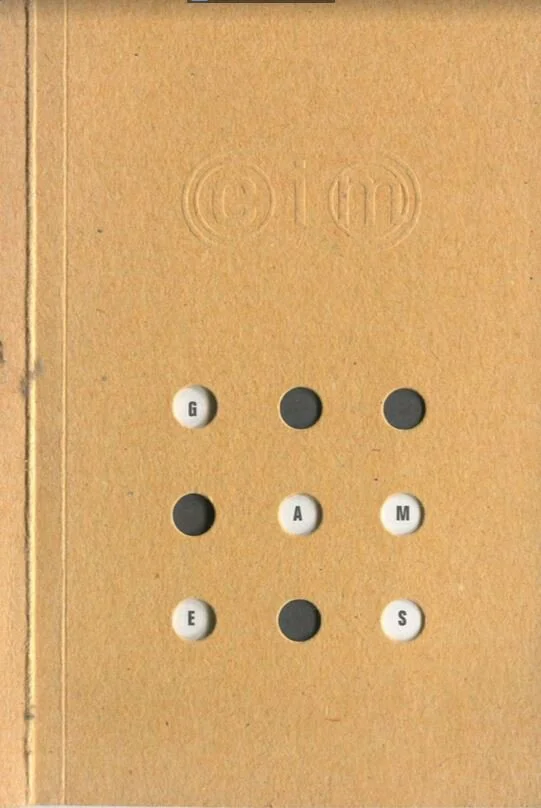Tijdkring - GAMES 1993
Contemporary improvised music festival 1993
Games, or the play in playing
Korzo is to be involved from the 11th to the 13th of November in the second contemporary Improvised Music festival (CIM). For three days the stages of both large and small concert halls will be inhabited by leading international musicians from the worlds of New, Improvised, and Jazz music. The theme of the festival is 'Games', or the play element which forms the basis of improvisation. Programmes are to include concerts by Misha Mengelberg, Radu Malfatti, Fred van Hove, Frederic Rzewski, Luc Houtkamp, Steve Beresford, Maarten Altena and Dick Raaijmakers.
'CIM '93 is above all an informative festival', says composer saxophonist Peter van Bergen. He is responsible for putting together the festival programme, and was also closely involved in the first CIM production in 1990. 'An extremely colourful whole, which I think gives a good overview of what is going on in music at the moment. The emphasis on the play element; mutual agreements made on the spot, gives the public a chance to witness the inner workings of modern music.
Rules of play
Improvisation is in fact an extremely disciplined way of making music. Even more so than with notated composition, is it of importance to react with alertness and feeling for the interpretative possibilities of what is going on around. The agreements of boundaries within which an improvisation is performed may, for example, lay out a circuit for the musicians. Each follows his or her own track, and must ensure that they meet up somewhere at the end of the piece. This is a method which, among others, has been used by Misha Mengelberg. With Radu Malfatti, sound is the basis. he devises relationships between them, thereby creating a musical pattern. In the pieces by Karlheinz Stockhausen and Anthony Braxton which appear in the programme, notation is used which deviates strongly from that of a traditional score, and in which certain elements such as rhythm or note pitches are left partly to the free interpretations of the performer. Finally, musicians such as Luc Houtkamp, Mats Gustafsson and Alexander Fangenheim are representatives of fully free improvisations, wherein the personal sound of the individual musician is expressed without limits.
Confrontation and conformity
'In the programme are various lines', states van Bergen. 'One line is confrontation. This is most apparent with the duos. Fred van Hove, a tightly organised improvisor, performs with the completely freely improvising Luc Houtkamp. With duo Keith Rowe and Jacques Palinckx, one sees two different generations of guitarists together, and Mats Gustafsson and Alexander Frangenheim represent the youngest stream of typically free improvisors.
The second line is organisation. Maarten Altena, Misha Mengel berg, Anthony Braxton, Radu Malfatti and Steve Beresford all have a very personal way of organising their music. It is very interesting to hear the various results to which this ultimately leads.'
It is no coincidence that the CIM festival has come to The Hague for the second time. The Hague is the cradle of post-war new music in The Netherlands. Initiator of what later became known as 'The Hague School' musical revolution in the '60s, was the then director of the Royal Conservatory, Kees van Baaren. The Conservatory became a breeding ground for new developments under his leadership (1958-1971). Reinbert de Leeuw, Louis Andriessen, Dick Raaijmakers, Konrad Boehmer, Misha Mengelberg, Pter Schat and Jan van Vlijmen are all musicians from this time who have formed the foundations for current musical evolution. Jan van Vlijmen succeeded van Baaren, and under his directorship the Conservatory grew into one of the most important among music training centres, and with an international reputation. Music Foundations Phoenix, organisor of the CIM festival, is one of the many of The Hague’s initiatives to have been created from this source.


